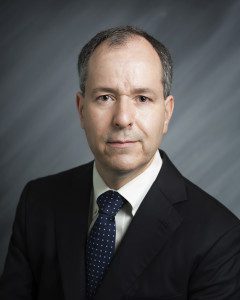Preservation Advocacy & Law, Part 3: A Commissioner and Planner’s Primer to the Brown Act
Special Offer: Register for the three-part Advocacy & Law series (Case Law, Success Stories, and Brown Act) and receive all three for $155 for non-members, $95 for members). Remember: All programs are free to members and sponsors at $250+.
In 2015, Arcadia faced a lawsuit related to a closed City Council meeting that considered a potential Historic Resource Survey. This year, the Tule Lake Committee filed a lawsuit against the City of Tulelake and the Modoc Tribe for holding closed meetings that discussed the disposition of the historic World War II Tule Lake Segregation Center.
As appointed decision-making bodies of local government, Planning and Historic Preservation Commissioners are subject to "Sunshine Laws," State statutes and local ordinances that require open and noticed public meetings for all deliberations and gatherings of a majority of the commission. Most often, violations of these laws fall under the state's Ralph M. Brown Act (Cal. Govt. Code 5490).
In this webinar, attorney Michael G. Colantuono of Colantuono, Highsmith & Whatley, PC will train commissioners, council members, board members - or anyone who is serving on a local decision-making body - how to avoid the most common pitfalls associated with open meeting laws. It will review case law and past examples to help reduce the risk of litigation and ensure that the public is given proper notice of meetings and other decisions. The webinar will focus on commissions that make decisions related to historic preservation, but the information will apply to any legislative body within local government.
You Will Learn...
- What constitutes a "meeting" under the Brown Act, and how commissions and boards can avoid some of the common pitfalls
- To whom the Brown Act applies
- What constitutes sufficient and timely public notice of a public meeting?
- How do advocates and other members of the local public ensure that their boards and commissions are holding lawful open meetings about historic resources?
Speaker
 Michael G. Colantuono is a shareholder in Colantuono, Highsmith & Whatley, a municipal law firm with offices in Pasadena and Grass Valley. Chief Justice Ronald M. George presented him with the 2010 Public Lawyer of the Year award on behalf of the California State Bar Association. The Los Angeles Daily Journal named him one of “California’s Top Municipal Lawyers” every year since its list began in 2011. The Supreme Court appointed him the first Chair of the Board of Trustees of the State Bar of California; he was previously President of the Bar. The State Bar has certified him as an Appellate Specialist and he is a member of the California Academy of Appellate Lawyers, a prestigious association of about 100 of California’s most distinguished appellate advocates.
Michael G. Colantuono is a shareholder in Colantuono, Highsmith & Whatley, a municipal law firm with offices in Pasadena and Grass Valley. Chief Justice Ronald M. George presented him with the 2010 Public Lawyer of the Year award on behalf of the California State Bar Association. The Los Angeles Daily Journal named him one of “California’s Top Municipal Lawyers” every year since its list began in 2011. The Supreme Court appointed him the first Chair of the Board of Trustees of the State Bar of California; he was previously President of the Bar. The State Bar has certified him as an Appellate Specialist and he is a member of the California Academy of Appellate Lawyers, a prestigious association of about 100 of California’s most distinguished appellate advocates.
Michael is one of California’s leading experts on municipal revenues and has appeared in all six Courts of Appeal in California. In addition, he has argued 11 public finance cases in the California Supreme Court since 2004 and has briefed an inversed condemnation liability case involving a sewer overflow.
Michael is City Attorney of Auburn and Grass Valley and general counsel of a number of LAFCOs and special districts and previously served six other cities and many special districts. He serves as special counsel to counties, cities and special districts around California.
Michael served as President of the City Attorneys Department of the League of California Cities in 2003–2004 and established its first Ethics Committee.
He served on the Commission on Local Governance in the 21st Century, the recommendations of which led to substantial revisions of the Cortese-Knox-Hertzberg Local Government Reorganization Act. Michael is General Counsel of the Calaveras and San Diego LAFCOs and serves as outside counsel to several other LAFCOs. Michael graduated magna cum laude from Harvard College with a degree in Government and received his law degree from the Boalt Hall School of Law of the University of California at Berkeley. He frequently posts comments on local government and municipal finance topics to Twitter ( @MColantuono ) and LinkedIn ( Michael Colantuono ).